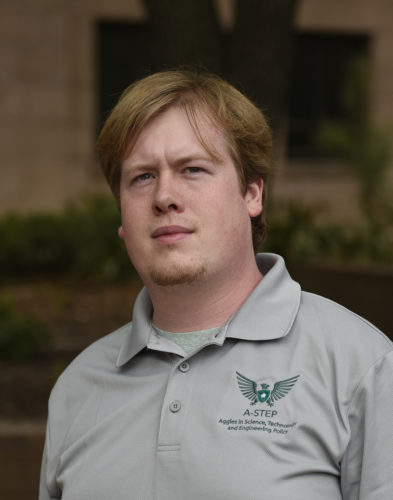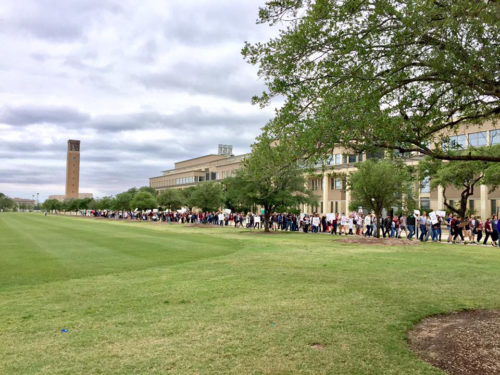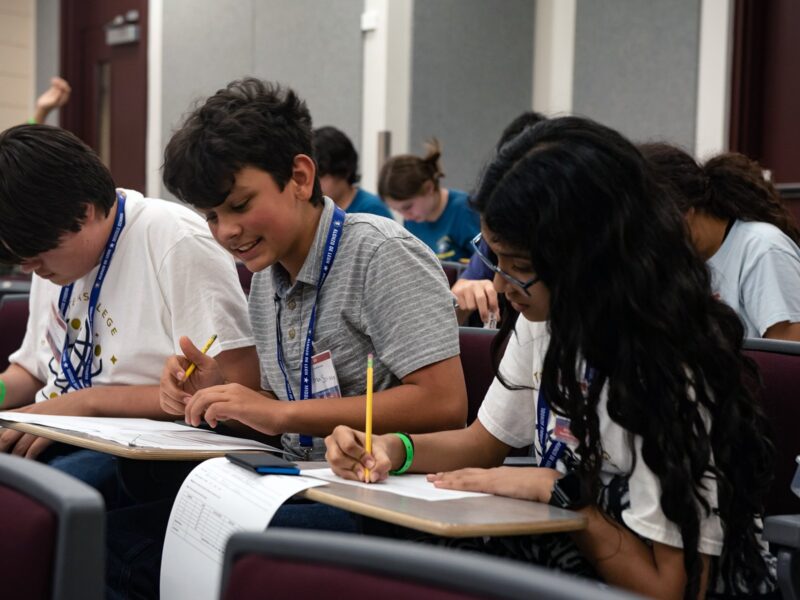
For most aspiring scientists, engineers and doctors, eventual membership in the National Academies of Science, Engineering, and Medicine ranks high among one’s top lifetime career goals, likely second only to winning a Nobel Prize.
Texas A&M University graduate student Zachary T. Perry ’17 got a taste of National Academies life this spring, spending 12 weeks at the prestigious organization’s Washington, D.C. headquarters as a participant in the Christine Mirzayan Science and Technology Policy Fellowship Program.
Now in its 20th year, the program has helped hundreds of fellows like Perry, a doctoral candidate in the Texas A&M Department of Chemistry, learn more about the role of science in the federal government as they explore their broader career potential.
“Through an internal mentorship program, a schedule of events with people throughout the Beltway and individual networking, this program has been the launching pad for many scientists seeking to find careers outside of the lab,” Perry said. “This fellowship afforded me the opportunity to learn about the roles scientists play within Washington and to network with professionals around the capital and, by extension, the world.”
On Saturday (April 22), Perry capitalized on a networking opportunity closer to home, helping to organize Bryan-College Station’s version of the national March for Science as an officer for Aggies in Science, Technology and Engineering Policy (A-STEP), a campus-wide student organization that seeks to bridge the information gap between researchers and policy makers by hosting regular seminars and outreach events on and off campus. Perry says the event drew several hundred people to Simpson Drill Field and the Interdisciplinary Life Sciences Building (ILSB) for a day of supporting science and learning more about what it is, why it matters and how related research at Texas A&M directly benefits society.

“The organizing committee headed by Jaskirat Batra, a proud Aggie who received his master’s from Texas A&M and is now a Ph.D. student here, did an amazing job to bring the community together, and we hope to carry this engagement forward,” said Perry, who is set to step into Batra’s shoes as A-STEP’s 2017-18 president-elect.
While the March for Science arguably was its most visible foray into the public arena, Perry says A-STEP hosts regular seminars each month aimed at informing the Texas A&M research community how their work translates into societal impact and to provide direction toward alternative career paths in both academia and industry. In particular, they work to showcase engaging speakers on topics not typically broached elsewhere on the collegiate scene as well as to highlight connections capable of getting students off campus to see science operating in the wider world.
“Each of the last three years, we have sent several students to Washington, D.C. in the spring for a visit with individuals and representatives on the Hill to learn firsthand how they can have an impact,” Perry said. “This is in association with the National Science Policy Group, a coalition of dozens of student organizations across the country seeking to empower scientists to engage policy makers. We hope to continue this practice as well as reach out at the state level to provide an even broader picture of the importance of science in government.”
When he’s not advocating for greater science awareness and opportunity across government and society, Perry says he most likely can be found in the laboratory — that of Texas A&M chemist Hongcai Joe Zhou, to be exact. He says he chose to attend graduate school at Texas A&M in 2012 after receiving his bachelor of science in chemistry from the University of Tennessee at Chattanooga based on the strength of its inorganic chemistry program, of which Zhou is both a graduate and a member. Within Zhou’s research group, he studies new materials for the separation of gasses related to energy production. Perry has been assistant group manager since 2013 and also served in a variety of leadership roles within the group, including helping to initiate and manage their U.S. Department of Energy-funded carbon dioxide capture program and working to design the new group laboratories that will be completed this summer. In addition, he has implemented several strategies to foster better internal and external communication, all the while presenting work at various technical conferences and co-authoring seven publications.
Perry, who is on track to finish his doctorate in May 2018, says he enjoyed his fellowship experience so much that he hopes to return to Washington, D.C. after graduation to find a job there in science policy and advocacy. Ever the promoter, he notes that the next application period for the Mirzayan Science and Technology Policy Fellowship Program opens May 1 and runs through Sept. 8 and that further information can be found at http://sites.nationalacademies.org/pga/policyfellows/.
To learn more about Perry and the Zhou research group, visit http://www.chem.tamu.edu/rgroup/zhou/.
For additional information on graduate programs in Texas A&M Chemistry, go to http://www.chem.tamu.edu/graduate/.
Contact: Shana K. Hutchins, (979) 862-1237 or shutchins@science.tamu.edu or Dr. Hongcai Joe Zhou, (979) 845-4034 or zhou@chem.tamu.edu
###
This story by Shana K. Hutchins was originally posted on the College of Science website.





